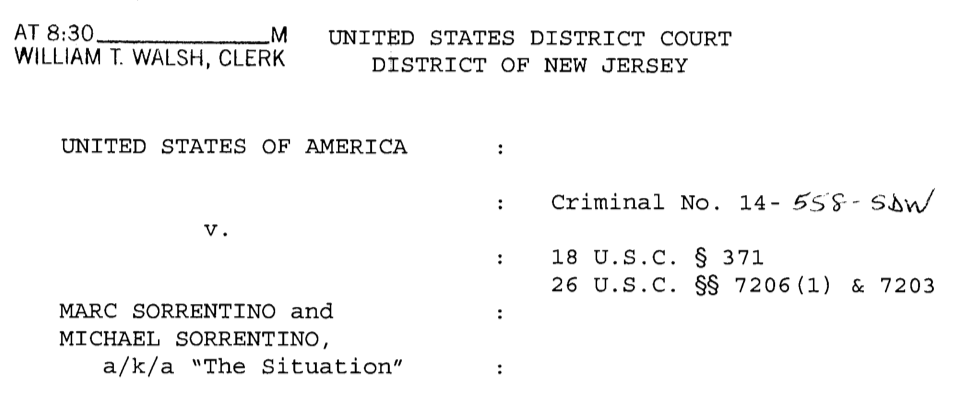In the glossy pages of the august legal publication that is Elle Magazine (see also the lead story titled “Why These Non-Singles Are Ruining Tinder“), the Notorious RBG continues her bizarre public relations campaign. In the interview, she talks about abortion, Hobby Lobby, a “national policy to promote birth,” and the childless Justices Kagan and Sotomayor. It is a very, very odd interview.
When asked about what the symbol of the United States should be, she take a potshot at Justice Kennedy:
Q: You’ve said that the symbol of the U.S. shouldn’t be an eagle but a pendulum. It seems to me that the pendulum has swung in a very conservative direction for women’s rights, but not for gay rights. Why?
A: To be frank, it’s one person who made the difference: Justice [Anthony] Kennedy. He was a member of the triumvirate used to [reaffirm] Roe v. Wade in the Casey case, but since then, his decisions have been on upholding restrictions on access to abortion.
I don’t even know what to make of this. Maybe the response was edited, but this seems to go far beyond the scope of the question. Were it not for Justice Kennedy, along with Justice’s O’Connor and Souter, Roe would have been overturned. And which “cases” (plural) is she talking about? The only two cases at issue are Stenberg v. Carhart and Gonzales v. Carhart. I should stress that by writing Gonzales v. Carhart, Kennedy left Casey largely in tact. This feeds into an false meme that apparently Justice Kennedy is very bad on abortion, even though there are only two cases post-Casey that are even on point.
Next, Notorious was asked about how laws can be passed to protect women’s rights:
Q: Do you think the pendulum might swing back in a more progressive direction on women’s rights in your lifetime?
A: I think it will, when we have a more functioning Congress.
One of the most misguided elements of the “gridlock” meme is that Congress is acting in some kind of partisan vacuum, as if the people who vote them into office all agree and get along. In case you didn’t realize it, the American populace is more polarized than ever before. The gridlocked Congress is but a mere manifestation of this disagreeability. Cass Sunstein recently wrote that “partyism”–people not liking those of the opposite party–trumps racism. You can’t fix Congress when people don’t agree.
As for which decision will be most significant in 50 years (when someone will be pleading with an elderly Justice Kagan to step down, no doubt), Notorious trains her sights on Hobby Lobby:
Q: Fifty years from now, which decisions in your tenure do you think will be the most significant?
A: Well, I think 50 years from now, people will not be able to understand Hobby Lobby.
This is a really tough question to answer. We tend to be very bad predictors of what will be important in the future. When I wrote my book, not 18 months ago, I tried to anticipate what would be the most salient Obamacare issues going forward. For the most part, I didn’t get it right. 50 years is a bridge too far for me to predict.
Next, a question is asked about how Hobby Lobby mostly impacts poor women. The question is bland, but the phrasing of RBG’s answer is really curious:
When people realize that poor women are being disproportionately affected, that’s when everyone will wake up? That seems very optimistic to me.
Yes, I think so…. It makes no sense as a national policy to promote birth only among poor people.
“National policy to promote birth.” I’ve never heard it phrased like that. I mean, that wasn’t the issue in Hobby Lobby. The issue was whether employers with certain religious convictions could be forced to pay for contraceptives. Indirectly, not having birth control may lead to birth, but this wasn’t about a “national policy to promote birth.” But, this no doubt is how RBG saw the case, and her opinion fits in with the meme.
With respect to retirement, RBG continues to exhibit her hubris–she says, who can you confirm that’s better than me!
I’m not sure how to ask this, but a lot of people who admire and respect you wonder if you’ll resign while President Obama is in office.
Who do you think President Obama could appoint at this very day, given the boundaries that we have? If I resign any time this year, he could not successfully appoint anyone I would like to see in the court. [The Senate Republicans] took off the filibuster for lower federal court appointments, but it remains for this court. So anybody who thinks that if I step down, Obama could appoint someone like me, they’re misguided. As long as I can do the job full steam…. I think I’ll recognize when the time comes that I can’t any longer. But now I can.
She gave a similar message to Joan Biskupic.
Referring to the political polarization in Washington and the unlikelihood that another liberal in her mold could be confirmed by the Senate, Ginsburg, the senior liberal on the nine-member bench, asked rhetorically, “So tell me who the president could have nominated this spring that you would rather see on the court than me?”
I commented at the time:
That is some hubris. Oh I’m sure I could find hundreds of law professors who would rather see someone half her age on the Court, even someone more moderate. What RBG maybe doesn’t realize is the non-starstruck lawyers care less about who sits on the Court than who is casting votes for years to come. I wonder if she would have deigned to say that in 2009 when Judge Sotomayor and Solicitor General Elena Kagan were cozying up the short list.
In the past she explained that she wants to stick around until she can no longer do the job. But now, we see the ulterior motive–she doesn’t think anyone else can do the job better than her. And all of the praise of her no doubt heightens this. I still think she should decide when she retires, but now we know why she’s sticking around.
Consider a counterfactual. RBG changes her mind, and steps down in June of 2016. Assume the GOP controls the Senate. Do the Republicans even let the President have a vote on a nominee? Or does the GOP simply vote down anyone–no matter how moderate (think of a Merrick Garland)? Does the Court go a full term with 8 Justices (boy that would mess up FantasySCOTUS!)? If they do, and a Democrat wins the next election, do they then swing for the fences once their party controls the Senate?
Next, RBG replies to criticism (by whom I don’t know) about Kagan and Sotomayor who do not have families:
How do you have a family and a family life and a work life? So some people are writing about Justice Sotomayor and Justice Kagan and saying to rise to the top of the tree in the legal profession, you have to forgo a family. Where are these people? What about Justice O’Connor? She had three sons. I have two children. Pat Wald was with me on the DC Circuit and had five children.
This doesn’t reflect well on either Kagan or Sotomayor. O”Connor did it. RBG did it. Kagan and Sotomayor. Whatever.
Update: Ed Whelan points out that the editorial staff at Elle noted that the Republicans eliminated the filibuster:
[The Senate Republicans] took off the filibuster for lower federal court appointments, but it remains for this court.
Is this what RBG said or implied? Or are the brackets simply not even in the ballpark of reality?
 At an event at the National Constitution Center (which does not seem to have been recorded), Justice Kennedy offered these remarks about the state of our civic discourse, commenting on a recent cover of National Affairs Magazine.
At an event at the National Constitution Center (which does not seem to have been recorded), Justice Kennedy offered these remarks about the state of our civic discourse, commenting on a recent cover of National Affairs Magazine.